Sugar AlternativesSugar has been one of the imminent food items consumed by humans since earlier times. The consumption of sugar increased in the 20th century with the surge in the intake of processed food and beverages like tea, coffee, and other drinks. It is the most common sweetener used in food items and subsequently became part of the staple food for individuals. The most commonly used refined simple sugar is called monosaccharides, which consist of galactose, glucose, and fructose. The white sugar used by us is also refined sugar. Sugar consumption has made the life of people sweet and tasty but has posed some serious threats. Excessive sugar intake may lead to health problems like weight gain due to a high intake of calories, diabetes, heart problems, low immunity, increases in the rate of ageing, tooth decay, high blood pressure, etc. These serious health problems raise the need for an appropriate substitute for sugar that can provide sweetness to the food without harming the health status of the people. The sugar substitutes/ alternatives can be mainly categorized into two groups, such as natural and artificial sugars. Some of the best alternatives to sugar are discussed below, which can help replace sugar without losing the sweetness of food. A) Natural sugars1. Maple syrup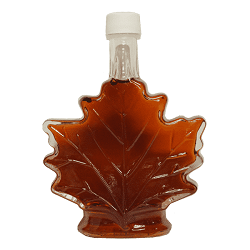
Maple syrup is a liquid sugar substitute made using the Xylem sap of maple trees like red maple, sugar maple, and black maple trees. It mainly contains sucrose and water. In 100gm of maple syrup, there are 260 calories with 67% carbohydrates. It has high contents of manganese and riboflavin but lacks all micronutrients. The sweetness in the syrup comes from sucrose and is generally used with waffles, hot cereal, fruits, pancakes, and many bakery products. 2. Date sugar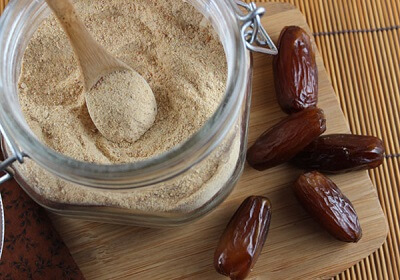
Date sugar is a granulated sugar prepared from dried dates. It is comparatively less processed than white sugar. It should not be confused with date palm sugar; both are different. It is made by mixing maltodextrin in the paste of dates, then it is dried, transforming it into granules. Dates are rich in iron, vitamin B, copper, potassium, and magnesium. Therefore, it can be used as a substitute for white sugar though it is processed and has some additives. 3. Honey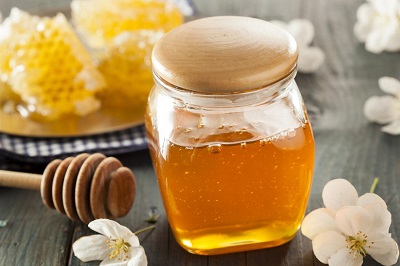
Honey is the most common natural sweetener with high nutritious and medicinal values. It is the most widely used sugar alternative worldwide for personal intake. It is a dense brown-yellowish liquid. Honey is extracted from the honeycombs made by honey bees, which also fill the comb with honey. The bees derive the sugary nectar from the flowers that convert into honey. Honey contains monosaccharides, fructose, and glucose that provide it with sweetness. About 100gm of honey contains 304 calories and 82gm carbohydrates, approximately. Honey has vitamins like ascorbic acid, niacin, and riboflavin and minerals like calcium, iron, copper, manganese, potassium, and zinc. Honey has anti-oxidant, anti-inflammatory, and anti-bacterial qualities, making it medically sound, apart from just a sugar alternative. 4. Monk Fruit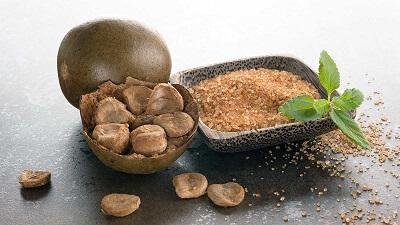
It was initially named Siraitia grosvenorii or luohan guo. It is a herbaceous vine fruit native to China. Morgrosides is an extract of monk fruit that gives sweet contents. It is a low-calorie sugar substitute with 300 times more sweetness than refined white sugar. Monk fruit is used in dried form because it is difficult to store when it is green. It has been used in traditional natural medicines as a sweetener. The monk fruit is a no-calorie, carbohydrate, and no-fat sugar substitute, making it the healthiest sugar alternative. It does not affect blood sugar levels, which is best for diabetes patients and causes no harm to teeth. 5. Yacon Syrup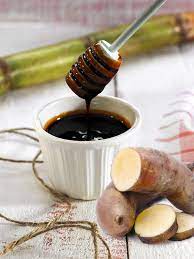
Yacon syrup is a liquid sweetener made from the tuberous roots of the Yacon plant. Yacon plant is a very healthy plant with fewer calories and sugar content. The syrup is made from the sweet extract of the root of Yacon by reducing the juice and then evaporating it to get syrup, which contains fructooligosaccharides (FOS). FOS has no adverse effect on the health of individuals; it controls blood glucose levels and gives relief from constipation. Yacon syrup has anti-oxidant properties and high potassium content. It is rich in vitamin B1, B2, C and niacin. In every 100gm of Yacon syrup, there are 133 calories. Yacon syrup has the same use case as honey or maple syrup. It can be used in bakery products, milk, curd, waffles, etc. 6. Stevia leaves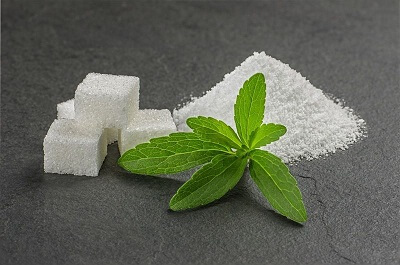
Stevia is a natural and calorie-free sugar alternative extracted from the leaves of Stevia rebaudiana (also called Bertoni). It is 250 times sweeter than refined sugar. It contains steviol glycosides which give it its sweetness. Stevia has no calories and no carbohydrates, which help in weight loss without sacrificing the taste buds from sweet, making it one of the healthiest sugar substitutes. Stevia contains anti-inflammatory properties. Some people also have some adverse effects from stevia, like low blood sugar levels, gastrointestinal issues, allergies, etc. 7. Palmyra palm Sugar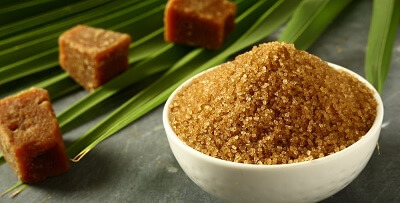
Palmyra palm sugar is a nutritious natural sweetener made from palm trees. It is extracted from the sap of flowers of the palm tree. The saps are boiled to thicken, which are later dried and divided into small pieces. In 100gm of palm sugar, there are 396 calories and 34% carbs. It is a good source of potassium and calcium that regulates blood sugar levels, improves digestion, and maintains blood pressure. Palm sugar is used in puddings, bakery items, and bitter gourd dishes to suppress bitterness. 8. Coconut sugar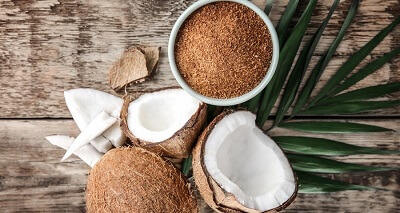
Coconut sugar is the natural sweetener derived from the sap of the flower of coconut trees. It is the best sugar alternative in coconut-growing countries like Sri Lanka, Indonesia, etc. One tablespoon of coconut sugar contains 15 calories and 15 carbs. Coconut is considered as healthy because it is plant-based, but scientifically, it is not so different from regular cane sugar. 9. Fruit purees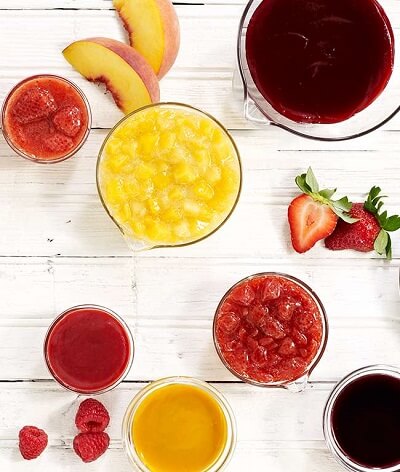
Fruit purees are the liquid form of fruit pulp that contains natural sugar in the form of fructose, which is used as a sweetening agent in various sweet dishes as an alternative to cane sugar. Purees of mangoes, cherries, grapes, figs, bananas, and other fruits are used in bakery products for sweetness that gives not only sweetness but also aromatic flavours to the dish. B) Artificial Sugars1. SucraloseSucralose is a synthetic form of sugar alternative. It has no calories and high shelf life. It is 1000 times sweeter than regular sugar. It is prepared by chlorinating sucrose by replacing C1, C4, and C6 hydroxy groups to form 1,6- dichloro-1,6- dideoxyfructose-4-chloro-4-deoxygalactose disaccharide and used in granulated form. It is mainly used by the food and beverages industry in making sweet dishes, candies, soft drinks, and ice-cream products. It has no effects on blood sugar levels, and there are no dental cavities issues due to no calorie presence. The advisable Sucralose quantity used by an individual is 900 mg per kg of body weight. It is regarded as the safest form of artificial sugar. 2. NeotameNeotame is an artificial sweetener that is 8000 times sweeter than regular sugar. It is used in soft drinks, bubble gums, and coffee to cut the bitterness. Neotame is sweet because of (2, S), (3, S)-stereoisomer. It is the aspartame and secondary amine of 3, 3-dimethylbutanal. It has stereocenters and stereoisomers. It is composed of aspartame by reducing alkylation with palladium as a catalyst with methanol. Neotame has more sweet flavours than sucrose and is very economical, making it feasible for industries to use. 3. SaccharinIt is another artificial sweetening agent with no nutritional value. It is used in soft drinks, ice-creams, candies, cookies, etc. Saccharin is 500 times sweeter than sucrose, which helps industries to get the sweetness in their products in minimal quantities. Saccharin is originally in acid form and is not soluble in water, so it is used in the form of sodium salt. It has a good shelf life and is heat stable. It gives a bitter and metallic taste if consumed directly or used in high concentration. It does not affect blood sugar levels as it has no nutritional content and is very low in calories. In 1gm of saccharin, there are just 3.6 calories. 4. AlluloseAllulose is originally named D-Psicose, which is a very low-calorie artificial sweetener. It is naturally available in some foods like wheat as a natural sweetening agent. It is mainly used in the food and beverages sectors, like bakery items and ice-creams, as an option for low-calorie sweeteners. Allulose is formed by converting fructose with the help of D-tagatose 3-epimerase, as it is the C3 epimer form of fructose. It has similar properties to regular sugar; however, its browning quality makes it a perfect replacement for sugar. It has no bitterness and provides up to 70% sweetness as sucrose. Allulose has a very low-calorie count, i.e., about 0.4 calories in 1gm of allulose, which helps prevent weight gain and does not affect blood sugar levels.
Next TopicAdobe Illustrator Alternatives
|
 For Videos Join Our Youtube Channel: Join Now
For Videos Join Our Youtube Channel: Join Now
Feedback
- Send your Feedback to [email protected]
Help Others, Please Share









